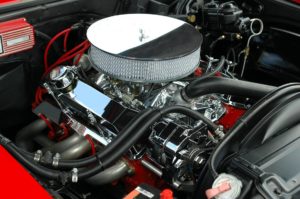The check engine light… it is a mysterious force that inspires anxiety or confusion in many individuals.
The light comes on and you think to yourself, “Oh, no. What’s wrong? What should I do?” The answer is – don’t panic! Assess the situation. While you will most likely need to have your vehicle checked by a qualified technician as soon as possible, this is not necessarily an emergency, and there are some problems that can be easily remedied. First, you need to determine how serious the problem is, so we’re going to show you how to do just that.
That yellow light is already telling you what severity the problem the electronic control system has found actually is. If the light is steady, then the problem is not an emergency, but a blinking light means something is very wrong. Take a look at your dashboard, and determine if there are any other indicator lights on. If the temperature warning light, or oil pressure warning light, are on, then you should pull over immediately, shut off the vehicle, and seek assistance. These indicate a serious issue, and continued operation of the vehicle at this point could pose a risk to your safety and the safety of others.
Temperature Warning Light 
Oil Pressure Warning Light 
If the light is steady, then it is safe to continue to your destination. When you get there, try tightening the fuel cap. This is a common reason a check engine light will come on, and the easiest to fix. You may not see an immediate result – the system might need some time to update and turn the light off. If this solves the problem, but the light comes on again, especially after refueling your vehicle, you may need to replace your gas cap.
If tightening the gas cap doesn’t solve the issue, there are a couple of other common causes. Spark plugs or plug wires, or the catalytic converter are often the reason for the check engine light to come on, as well as an issue with the Oxygen (O2) Sensor, or Mass Airflow (MAF) Sensor. Any of these items will need to be replaced to prevent compounding the problem, as they can cause additional damage to other parts of the system if not corrected in a timely manner. These, or any other causes can be determined by a professional. You may choose to take your vehicle to your trusted mechanic for diagnosis, as they will ultimately need to repair serious issues. Some places, such as many notable auto parts stores, will use a device to check a code to try to determine the cause for the light, usually for free, and this will at least let you know what to expect when you visit your mechanic.

NEVER ignore the check engine light, even if the light is not flashing. Doing nothing will not resolve the issue, and ignoring a problem could lead to serious damage which will incur more repair costs in the long run, and might even mean eventually breaking down on the side of the road and needing a tow when that could have been avoided by heeding the initial warning.

